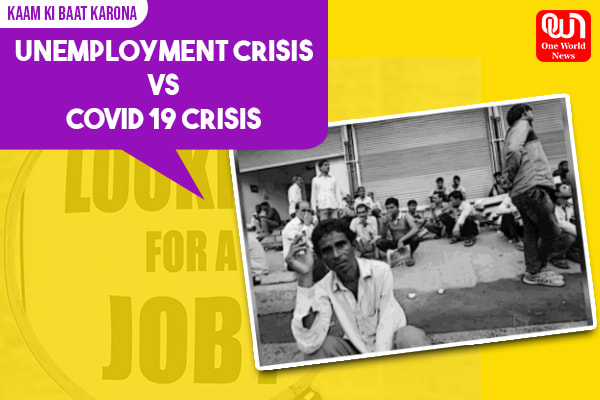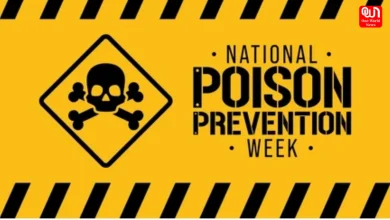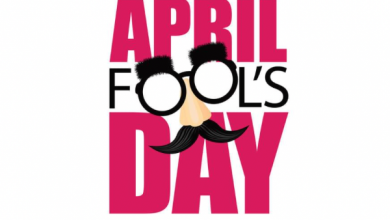Is the Unemployment crisis worse than Covid-19 crisis?

Un ‘Employed’ & Un ‘Heard’: COVID-19 is taking a toll on jobs, Mental Health, and Future Security
2020 is not ending anytime soon. 6 months of 2020, and it feels like we are in a lock down since ages. There were already so many issues, and this pandemic has just made it worse. One of the issues which need serious attention is ‘Unemployment’! It is alarming and dangerous. This is leading to depression and suicides in the country. Unemployment went up to 26 percent on April 19, 2020 and to 27.1 in May 2020. This was possibly a result of a decrease in demand as well as the disruption of workforce faced by companies. Furthermore, this caused Gross Value Added (GVA) loss of more than nine percent to the Indian economy that month.
According to the latest report by the World Bank, India’s economy will shrink to 3.2 percent GDP in 2020 -21. However, the economy is expected to bounce back.
Stories of Layoffs which are heart wrenching
Between February and April 2020, many households experienced a fall in income and the numbers of such households shot upto 46 percent. Inflation rates on goods and services including food products and fuel were expected to rise later this year. Social distancing resulted in the job losses, specifically those Indian society’s lower economic strata. Many households terminated domestic help services, essentially an unorganized monthly-paying job. They are still hunting for work and a lot of them migrated to their villages. The fear of the spread of virus took a financial toll on lower economic strata. Most Indians were seen spending a large amount of time engaging in household chores themselves, making it the most widely practiced lockdown activity.
Source: Coronavirus impact on unemployment rate
Numbers will shock you: Double whammy for Indians
Lockdown in the country resulted in 122 million Indians losing their jobs in April itself, as per the data of a private research agency. Centre for Monitoring the Indian Economy data shows India’s unemployment rate is now at a record high of 27.1%. Shockingly, the new data shows India’s unemployment figures are four times that of the US. Notably, there is no official Indian Jobs data, but CMIE is widely accepted.
Read more: COVID-19 crisis: Auction of Airports, Is it like rearranging deck chairs on Titanic?
India was under strict lockdown since March 25, causing mass layoffs and heavy job losses. Unemployment hit 23.5% in the starting of April, it was a sharp spike from 8.7% in March. Lockdown brought everything on a standstill – except essential services such as hospitals, pharmacies and food supplies. Scenes of desperate migrant workers returning to their villages were all over the internet, newspaper and TV channels for most of April. They were first to be hit as construction stopped, and cities suspended public transport. Apart from it, large companies across various sectors – media, aviation, retail, hospitality, automobiles – have announced massive layoffs in recent weeks. In fact, experts have predicted that small businesses may get shut altogether.
Look at the figures
Out of 122 million who have lost their jobs, 91.3 million were small traders and labourers. But a fairly significant number of salaried workers – 17.8 million – and self-employed people – 18.2 million – have also lost work. What is alarming and disturbing is that India had entered the lockdown with already high unemployment levels. At 8.7 %, the rate which was all time high in the last 45 years.
Unemployment crisis is leading to depression and suicides
Be it any sector, COVID 19 has hit hard. Uncertain jobs and salary cuts have taken a toll on the mental health of the people. Everyday people on various social media sites people are sharing their stories. Economy was already crippling and COVID 19 has just made it hard. To give you an insight on what is happening, here is a list:
1. Zomato laid off – Over 500 employees
2. Swiggy – 1100 employees
3. Uber India laid off 3,700 employees
4. Ola – 14,00
According to a survey conducted by NASSCOM, 70 percent of the startups in India have less than 3 months of cash runaway. Around 40 percent of them are temporarily or on the verge of shutting down. Read the full report here
Are employers using it as an opportunity to lay off employees?
A lot of people complained that organizations are using this as an opportunity to lay off employees, especially in the media sector. There were many cases where employees went on to file petitions against the employers. One of them was St. Stephen Hospital where five doctors accused of being sacked without any notice. The fear of losing jobs is forcing people to go to work (of all ages) making them vulnerable to infections. We got in touch with two journalists to understand the situation. Keeping their identity confidential here is what they had to say – “We have given so many years to this industry. We worked with utmost honesty, but we realized we were just another headcount. We were regularly going to the office due to the fear of losing our jobs. Soon after, we were tested positive – there was no cooperation from the organization, and eventually we were shown doors.”
Suicide became the leading cause of over 300 deaths in India. A lot of people committed due to loneliness. And 50 deaths were reported due to unemployment. The condition is alarming. According to experts, the never seen before recession and job crisis is on its way.
Source: BBC
Farmers – Economic Shock from the Lockdown
The farmers are also vulnerable to a potential economic shock from the lockdown – the agriculture industry contributes nearly $265bn to GDP. The government says it will give farmers 2,000 rupees in April as an advance payment to deal with the situation. According to Economist Arun Kumar, “This money will be inadequate because exports have stopped. Prices in cities will rise because of profiteering and in rural areas they will drop because farmers won’t be able to sell their crop.”
Notably, the outbreak has happened at a critical farming time – the new crop is ready, waiting to be sold. Economists warn India’s challenge will be in transporting this food from villages to cities in the midst of the lockdown.
Experts warn that India is also at the brink of a major unemployment crisis.
Economist Vivek Kaul says, people who work for small businesses may end up with job and salary losses.

Was this on cards?
Covid 19 wasn’t on the cards and nobody knew about it. But the unemployment crisis is not new. Indian economy has been struggling for quite a long time. The ruling party NDA promised 25 crore jobs in its 2014 manifesto. Employment word was used dozens of times in its 2019 manifesto. But we all know the result, the highest unemployment rate in the last 45 years. COVID -19 outbreak will cripple the already frail economy, leaving the youth in distress. After the reopening of the economy, things have improved. The problem still lies with the stable and good salaried jobs. According to experts, people between 20- 30 will have no savings when they will hit 50. As it has become extremely difficult to find stable jobs.
Indian economy was badly impacted by demonetization in 2016, and COVID- 19 has once again pushed it towards uncertainty.
Will the relief package help?
India has announced a 23-billion-dollar relief package to help people of the unorganized sector, the informal industry which employs 94% of the population and contributes 45% to its overall output. This industry is already bearing the brunt of the lockdown with thousands finding themselves unemployed in just a couple of days.
“No-one will be allowed to go hungry,” Finance Minister Nirmala Sitharaman said while announcing the package – it is a combination of direct cash transfer benefits and food security measures. But the economic fallout of this lockdown is terrible. Businesses have closed, unemployment has risen and productivity has fallen.
Once one of the fastest growing economies in the world, and growth slowed to 4.7% last year – the slowest level in six years.
Unemployment was at a 45-year high last year. Industrial output from the eight core sectors at the end of last year fell by 5.2% – the worst in 14 years. Small businesses had only just begun to recover from the controversial 2016 currency ban that came as a body blow for the informal sector.
Now, experts say the coronavirus outbreak is likely to further cripple the already frail economy.
Well, Is that all?
Flights in India were suspended till April, the shutdown pushed India’s fast-growing aviation industry into peril.
The Centre for Asia Pacific Aviation (CAPA) has assessed that the Indian aviation industry will face losses of nearly $4bn this year.
This will affect the hospitality and tourism industries. Hotels and restaurant chains across the country are empty and are likely to remain so for several months, sparking worries of large-scale layoffs.
The automobile industry, a key indicator of a country’s economic growth, has also been forced to hit the brakes – experts are estimating losses of nearly $2bn.
Source: BBC
Questions we, as a nation ask
· Is India’s bailout package enough to help the citizens?
· What steps are being taken to help the unemployed?
· The government claims to provide employment in the native state. It didn’t tell how?
· For how long the government will aid with relief packages?
· How and when will the aviation and tourism industry start as it helps the most in boosting the economy?
· What is the ground reality of the relief-packages?
· How will India become, “Aatmanirbhar”?
Let us know your thoughts! Suggest and comment because your opinion matters
Content contribution – Ankur Kumar
हिंदी में पढ़ें: लॉकडाउन और बेरोजगारी: कोरोना काल में हुए कई सपने खाक
Have a news story, an interesting write-up or simply a suggestion? Write to us at info@oneworldnews.com







